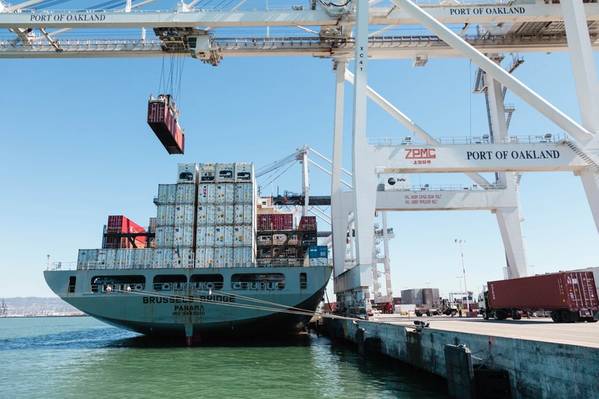
Port of Oakland Executive Director Chris Lytle is sounding an alarm over the trade war with China. The veteran maritime leader this week warned that tariffs imposed by both sides threaten the U.S. economy. He added that trade barriers could dry up his customers’ access to a major export market.
“We remain concerned about the impact that tariffs will have on the health of our economy,” the Executive Director wrote in a letter to U.S. Trade Representative Robert Lighthizer. “To the extent that other countries are stepping in to provide goods that are exported by U.S. businesses to China, the long-term potential for domestic companies to access one of the world’s largest consumer markets will be severely hindered.”
Mr. Lytle’s comments came as the Trump Administration considers additional tariffs in its ongoing trade standoff with China. The remarks carried added weight from an executive whose career includes running two major ports: Oakland and Long Beach.
The Executive Director signed a second letter – along with 600 other U.S. business leaders – addressed to President Trump. It called for the Administration to resolve the dispute with China and eliminate tariffs imposed by both sides.
China accounts for more than a third of Oakland’s total trade volume, Mr. Lytle said. The Port ships large quantities of U.S. farm exports, he said, which are particularly vulnerable to Chinese tariffs.
“The Port of Oakland continues to hear from our partners in the supply chain about specific impacts to their unique sectors,” Mr. Lytle wrote in his letter. “It’s clear that the overall negative long-term potential impacts of these tariffs on the international movement of agricultural products, manufactured goods, household items and retail products is real.”
Oakland’s boss called on the Trump Administration to avoid imposing tariffs on cargo-handling equipment produced in China. The Port’s largest marine terminal awaits 2020 delivery of three new ship-to-shore cranes from Shanghai-based ZPMC.
“There is not a comparable domestic producer of ship-to-shore cranes,” Mr. Lytle explained. “Tariffs could severely impede and/or prevent our marine terminal partners from making the critical infrastructure investments needed to adapt to the changing international trade landscape.”


